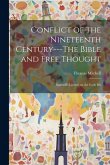In a world where the Olympian gods once ruled with absolute power, Kratos, the God of War, has finally brought their reign to a catastrophic end. With his legendary strength and relentless pursuit of vengeance, Kratos led the Holy Massacre that dismantled the very foundation of the gods' dominance on Mount Crete. The world, once shaped by their divine will, is now in ruins, and Kratos must confront not only the remnants of the gods' empire but also the chaos and void they left behind. The gods may be gone, but their legacy lives on in the fractured, war-torn world they once ruled. With their fall, Kratos discovers that his battle is far from over. The land, now bereft of divine authority, teeters on the edge of anarchy. Mortal men and women, previously oppressed by the gods, rise to fill the power vacuum, bringing new conflicts and dangers to a fragile world. These new leaders, though free from divine shackles, are no less ruthless in their ambitions. Kratos must decide if his role in this new world will be as a destroyer or a builder. His journey will not only be one of physical battles but also a spiritual reckoning as he seeks to understand the true meaning of power, leadership, and responsibility. As Kratos wanders through this fractured land, he is forced to confront his own demons. The rage that once consumed him begins to subside, and he realizes that true strength is not just about wielding power but about controlling it. The world may need rebuilding, but so does he. Each step he takes brings him closer to understanding the true cost of vengeance and the weight of his past decisions. No longer driven by anger, Kratos now seeks redemption-not just for himself, but for the world that he helped destroy. The remnants of the gods' followers, desperate to regain control, rise in opposition to Kratos. These new adversaries are not gods, but they possess the same hunger for dominance, threatening to plunge the world back into the same cycles of power and destruction that the gods had once forged. Kratos must rally those who suffered under the gods' reign, forge alliances, and lead them against these new forces. But the stakes are higher now, as the struggle is not just for survival, but for the creation of a new world where tyranny no longer reigns. Amidst the violence, Kratos encounters unexpected allies-those who were once pawns in the gods' games. Together, they work to reshape the world into something better, but this process is not without its challenges. The land is filled with old wounds, and the scars of the gods' rule run deep in every soul. . Kratos's journey of redemption forces him to make painful choices and sacrifices. As the leader of the new world, he must balance the pursuit of justice with the need for compassion. The struggle for a better future is a long and arduous one, and Kratos will face numerous tests of his resolve and character. The path ahead is uncertain, but Kratos is committed to leading his people toward a future free from the tyranny of the gods-a future where mortals, no longer shackled by divine rule, can shape their own destinies. In the final moments, Kratos's evolution from a vengeful warrior to a wise and compassionate leader reflects the true essence of his journey. The gods are gone, but their legacy of power, corruption, and destruction lingers, and Kratos must ensure that history does not repeat itself. Through his sacrifices, battles, and alliances, he becomes a symbol of hope-a man who not only destroyed gods but also the cycles of tyranny they represented. His legacy will be one of peace, not through conquest, but through the strength of leadership, vision, and the courage to build a world from the ashes of the old.
Bitte wählen Sie Ihr Anliegen aus.
Rechnungen
Retourenschein anfordern
Bestellstatus
Storno









